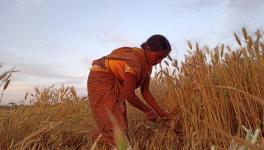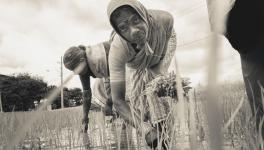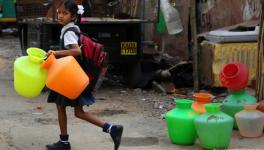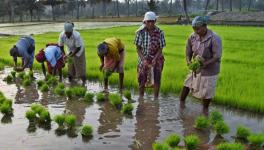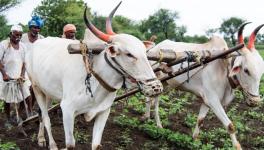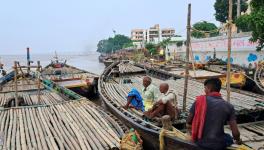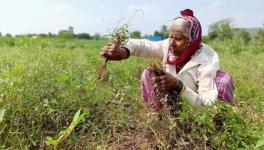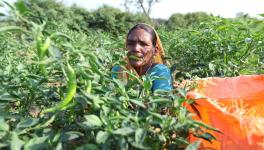The Oasis Villages of Parched Bundelkhand
Image for representational use only.Image Courtesy : The Quint
When stuck in a desert, first thing one will have to look for is an oasis, to be able to quench the thirst. The Jakhni and Baberu villages, at a distance of about 18 km from the Banda district headquarters, are not less than an oasis for the parched land.
While Bundelkhand—Banda being a part of it—is reeling under severe water crisis since last many years, the two villages have set an example and have been a role model for other villagers. The residents of these villages understood the gravity of water woes 11 years ago when the region was hit by a drought and ever since then, the villagers have been conserving water in the best ways possible.
Not that away from the Pandui village – where the first case of suicide was reported from Bundelkhand region in 2005 – the Jakhni village today follows ‘zero water wastage’ principle, as every single drop of water is utilised by the villagers. Jakhni resident Shobharam, who is also a small-time water activist, said, “The villagers first developed the Jakhni village and watching it prosper, the residents of Baberu did the same. The concept here in Jakhni village is that small drains have been constructed in the village which is connected to every house and all the waste water from the houses gets collected at one place, say a small pond, and it is used in the farms. The villagers have also trenched their wells from where they get the drinking water and they do not use it as a trash can.”
He further explained, “The villagers stopped planting paddy and lentils a long ago, as it requires a lot of water. Instead, they have started growing vegetables among other things. Today, both Jakhni and Baberu villagers are the best source of fresh vegetables for the city. And fortunately, none of the farmers from these villages have taken the extreme step and committed suicide even after having some amount of debt on their heads. The income from the vegetables is letting them run their lives.”
“A few of the houses in both these villages have also started conserving water, but it cannot be called rainwater harvesting, as these people have been doing it in an unorganised way – using plastic drums. The government has not helped them,” Shobharam said. If this can be done without the help of government, then imagine the magnitude of conservation if the government join hands with them, he added.
Rambaboo Tiwari, a resident of the Baberu village, said, “The key to end this water crisis in Bundelkhand lies in conservation of water, land and silt. The region is suffering from water crisis due to reckless use of water and illegal sand mining,” he said, adding that now even the government seems to be inspired from these two villages and is encouraging the residents to work towards water conservation.
Urmila Sahu, a resident of the Jakhni village, who has been growing vegetables in her farms, told NewsClick, “I have not incurred losses in vegetable farming. Today, I have been growing brinjal, coriander, mustard, spinach and other things. We have stopped growing paddy and other things which require much water. Our basic aim is to farm crops which can grow on moisture of the soil.”
Also read: Bundelkhand Drought: Villagers of Banda Working Hard To Revive Ponds, Wells
Get the latest reports & analysis with people's perspective on Protests, movements & deep analytical videos, discussions of the current affairs in your Telegram app. Subscribe to NewsClick's Telegram channel & get Real-Time updates on stories, as they get published on our website.









